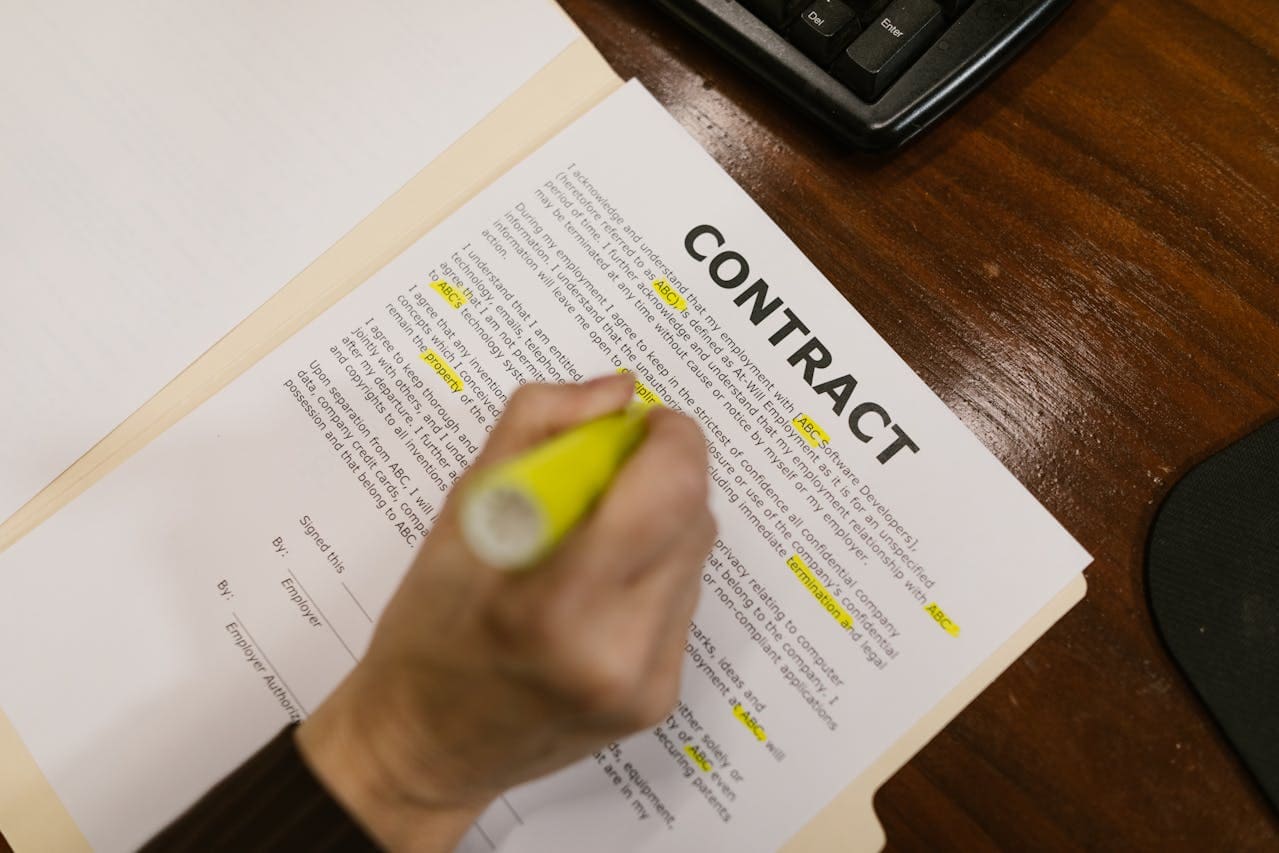Introduction
Workers’ compensation cases are a vital aspect of protecting employees’ rights when they suffer job-related injuries or illnesses. Navigating the complexities of these cases requires a keen understanding of the legal consulting landscape. In this informative article, we will explore common mistakes made in workers’ compensation cases and provide insights to help claimants and their legal representatives avoid these pitfalls.
A Brief on Workers’ Compensation
Workers’ compensation is a system designed to provide financial assistance and medical benefits to employees who sustain injuries or illnesses in the course of their employment. This no-fault system aims to streamline the process of compensating workers without the need for lengthy legal consulting battles. However, to benefit from this system fully, it is crucial to avoid certain common mistakes.
Common Mistakes to Avoid in Workers’ Compensation Cases
Navigating the complexities of workers’ compensation cases requires diligence and awareness. Unfortunately, common mistakes can hinder the pursuit of fair compensation for workplace injuries or illnesses. In this section, we’ll delve into the prevalent missteps that both claimants and their legal representatives should steer clear of to ensure a smoother and more successful workers’ compensation process. By understanding and avoiding these pitfalls, stakeholders can enhance their chances of securing rightful benefits and support. Let’s explore these common mistakes in detail.
Delayed Reporting and Filing of Claims:
In this section, we discuss the critical importance of immediate reporting when it comes to workplace injuries or illnesses. Delays in reporting can hinder the claims process, and we explore the reasons behind such delays, emphasizing the need for a swift and transparent reporting culture. Additionally, we highlight the significance of adhering to statutory deadlines for filing compensation claims to prevent potential denial of benefits.
-
Importance of Immediate Reporting:
One of the most common mistakes in workers’ compensation cases is delaying the reporting of workplace injuries or illnesses. Timely reporting is critical for ensuring prompt medical attention and initiating the claims process. Employees may hesitate due to fear of retaliation, lack of awareness, or underestimation of the severity of their condition.
-
Adhering to Statutory Deadlines:
Understanding and adhering to statutory deadlines is paramount. Each jurisdiction has specific time frames within which workers must report injuries and file compensation claims. Failure to meet these deadlines may result in the denial of benefits. Workers and their legal consulting representatives should be diligent in adhering to these statutory requirements.
Inadequate Documentation and Record-Keeping:
This section focuses on the pivotal role that comprehensive documentation plays in the success of a workers’ compensation claim. We delve into the importance of detailed incident reports collaboratively prepared by employers and employees. Furthermore, we stress the significance of thorough medical documentation, which forms the foundation for establishing the legitimacy of the claim.
-
Comprehensive Incident Reports:
Incomplete or vague incident reports can weaken a workers’ compensation claim. Employers and employees should collaborate to ensure that incident reports provide a detailed and accurate account of the circumstances surrounding the injury or illness. Thorough documentation is essential for establishing the legitimacy of the claim.
-
Significance of Medical Documentation:
Medical documentation forms the backbone of a workers’ compensation case. Claimants should seek immediate medical attention, follow prescribed treatments, and maintain detailed records of medical appointments, diagnoses, and treatment plans. This documentation not only supports the claim but also provides a comprehensive picture of the injury or illness.
-
Consistency in Statements:
Consistency in statements is crucial for credibility. Discrepancies in reporting the incident, symptoms, or medical history can be exploited by the opposing party. Stakeholders should emphasize the importance of accurate and consistent communication throughout the claims process.
Failure to Seek Prompt Medical Attention:
Addressing the common mistake of underestimating the importance of seeking prompt medical attention after a workplace injury or illness, this section emphasizes the potential consequences of delayed medical care. We stress the need for immediate attention from qualified healthcare providers and the importance of adhering to prescribed treatment plans for both recovery and claim success.
-
Avoiding Underestimation of Injuries:
Delaying or neglecting medical attention is a common mistake. Some workers may downplay the severity of their injuries initially, assuming they will recover without medical intervention. However, prompt medical care not only supports the claim but also prevents potential complications and strengthens the link between the workplace incident and the resulting condition.
-
Consulting Qualified Healthcare Providers:
Seeking medical attention from qualified healthcare professionals with experience in workers’ compensation cases is crucial. These specialists can provide accurate diagnoses and comprehensive documentation, bolstering the connection between the workplace incident and the resulting injury or illness.
-
Adherence to Treatment Plans:
Following prescribed treatment plans is not only essential for recovery but also for the success of a workers’ compensation claim. Stakeholders should stress the importance of claimants adhering to medical recommendations. Failure to comply may be used against the claimant, suggesting a lack of commitment to recovery.
Ineffective Communication and Cooperation:
This section revolves around the theme of communication and cooperation in the workers’ compensation process. Timely notification to employers about injuries, transparent communication with medical providers, and regular updates to stakeholders are highlighted as crucial elements in ensuring a smooth and efficient claims process.
-
Timely Notification to Employers:
Open and effective communication between injured workers, employers, and insurance providers is vital. Workers should promptly inform their employers about workplace injuries or illnesses. Failing to communicate the incident may result in delayed medical care and create skepticism about the legitimacy of the claim.
-
Transparent Communication with Medical Providers:
Open communication between injured workers and their healthcare providers is equally essential. Providing accurate information about the incident and keeping medical professionals informed about changes in symptoms or treatment difficulties is crucial for the successful management of the case.
-
Regular Updates to Stakeholders:
Both claimants and their legal representatives should prioritize regular updates to employers and insurance providers on the status of the case. Keeping all parties informed helps streamline the process, minimizes misunderstandings, and contributes to a more efficient resolution.
Insufficient Legal consulting Representation:
Focusing on the legal aspects, this section underscores the necessity of timely legal consulting. It explains why early intervention from experienced attorneys is crucial for understanding rights, evaluating the strength of the case, and navigating the complexities of workers’ compensation law. The importance of appealing adverse decisions is also emphasized.
-
Timely Legal Consulting:
Procrastinating legal consulting is a common mistake made by workers pursuing compensation independently. Early legal intervention is crucial for understanding rights, evaluating the strength of the case, and guiding claimants through complex legal consulting procedures.
-
Importance of Experienced Attorneys:
Hiring an attorney without sufficient experience in workers’ compensation law can be detrimental to the case. Experienced attorneys understand the nuances of the legal process, can anticipate challenges, and effectively advocate for their clients.
-
Appeals Process:
In the event of a denied claim, failing to appeal adverse decisions is a significant mistake. Workers’ compensation legal consulting professionals should be proactive in challenging denials, presenting additional evidence, and advocating for the rights of their clients through the appeals process.
Social Media Awareness:
In the age of social media, this section sheds light on the potential pitfalls associated with online presence. We discuss how workers should be mindful of the content shared on social media platforms to avoid compromising the legitimacy of their claims. Adjusting privacy settings is presented as a protective measure against the scrutiny of insurance investigators.
-
Mindful Online Presence:
In the age of social media, workers should be cautious about sharing activities or updates that may contradict the severity of their injuries. Insurance providers often scrutinize online content to challenge the legitimacy of claims, emphasizing the importance of maintaining online privacy.
-
Adjusting Privacy Settings:
Workers should adjust their privacy settings on social media platforms to limit access to personal information. Insurance investigators may use public information to dispute claims, highlighting the need for maintaining online privacy to safeguard the integrity of the case.
-
Consistency in Testimony and Social Media:
Legal consulting professionals should be vigilant in comparing statements made on social media with the testimony provided during legal proceedings. Discrepancies may be used to undermine the credibility of the claimant, making social media awareness an integral aspect of workers’ compensation cases.
Embracing Vocational Rehabilitation Opportunities:
The final section highlights the often-overlooked aspect of vocational rehabilitation. We discuss how workers’ compensation cases extend beyond medical treatment and disability benefits. Vocational rehabilitation opportunities are explored as valuable resources that can aid injured workers in re-entering the workforce, emphasizing the importance of active collaboration with rehabilitation professionals.
-
Recognizing the Significance of Rehabilitation:
Workers’ compensation cases extend beyond medical treatment and disability benefits. Vocational rehabilitation can play a crucial role in helping injured workers re-enter the workforce, and neglecting these opportunities is a common oversight.
-
Active Collaboration with Rehabilitation Professionals:
Legal consulting professionals should collaborate with vocational rehabilitation professionals to assess the skills and limitations of their clients. This collaboration helps build a comprehensive case for vocational rehabilitation services, ensuring that the injured worker receives appropriate support for reintegration into the workforce.

Conclusion:
Workers’ compensation cases demand meticulous attention to detail, proactive communication, and strategic planning. By avoiding common mistakes in reporting, documentation, medical attention, legal consulting representation, and social media usage, and embracing rehabilitation opportunities, stakeholders can contribute to a more efficient and just workers’ compensation process. Staying informed about emerging issues and best practices is essential for both claimants and their legal representatives as they navigate the evolving landscape of workers’ compensation cases.
Similar blogs:
10 Workers’ Compensation Defense Trends You’re Not Following
Legal Consulting in Action: Harmonizing Workers’ Compensation and Personal Injury Claims













































